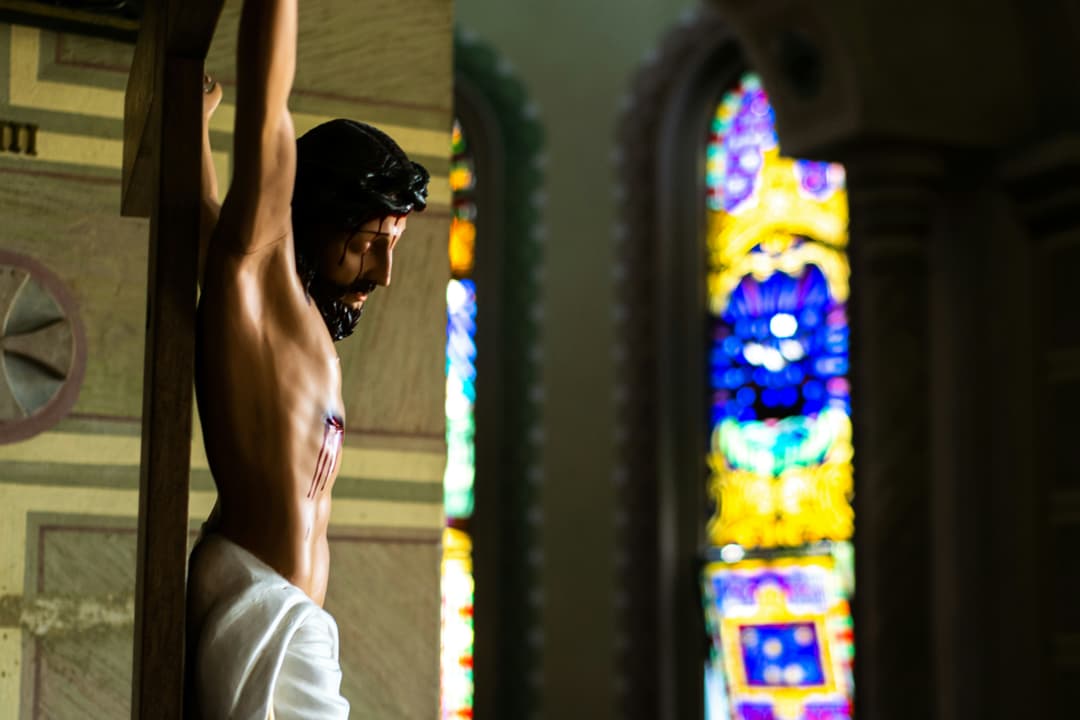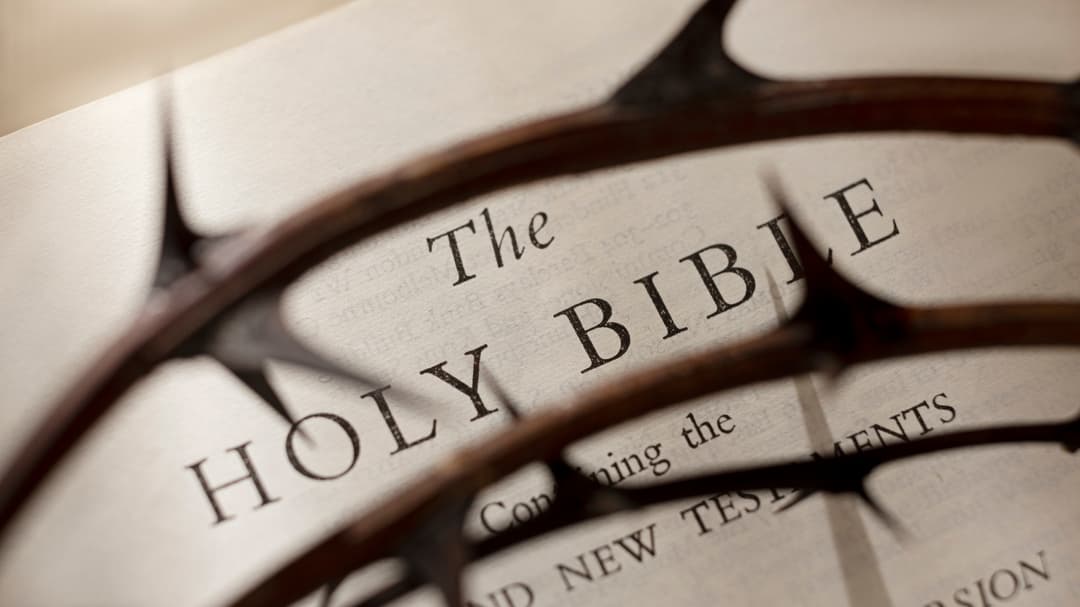The Difference Between Catholic and Christian
 Source: Freepik
Source: Freepik
Catholicism and Christianity, while both rooted in the teachings of Jesus Christ, differ in key aspects of belief and practice. Catholics adhere to the authority of the Pope, who is seen as the spiritual leader and successor to Saint Peter, and they follow the traditions of the Church in conjunction with the Bible.
In contrast, many other Christians, particularly Protestants, reject papal authority and emphasize "sola scriptura," or the Bible alone as the source of faith. Catholics recognize seven sacraments, including the Eucharist, which they believe to be the literal body and blood of Christ, while many other Christians view the Eucharist as symbolic and recognize only two sacraments.
Additionally, Catholics believe in salvation through both faith and works, whereas many Protestant denominations emphasize salvation by faith alone. These differences highlight the diverse interpretations and practices within the broader Christian tradition.
What is Christianity?
With more than 2 billion adherents, the Christian religion is the most popular religion in the world. Beliefs about the conception, life, death, and resurrection of Jesus Christ are at the core of the Christian faith.
Even though Christianity began with a tiny number of followers, many historians consider the global adoption and spread of the religion to be among the most fruitful spiritual endeavors in human history.
What Do Catholics Believe? Jesus and His Teachings
Catholicism beliefs center around Jesus and Virgin Mary. The Bible says that Jesus was born in the village of Bethlehem, on the West Bank, south of Jerusalem, to a young Jewish virgin named Mary. Christians hold that God impregnated Mary by the power of the Holy Spirit, and that the conception was a miraculous occurrence.
Very little is known about the early years of Jesus. Scriptures state that Jesus was born and raised in Nazareth, that he and his family escaped King Herod's persecution and relocated to Egypt, and that his "earthly" father, Joseph, was a carpenter.
Since Jesus was raised Jewish, the majority of academics believe that his mission was to reform Judaism rather than found a new religion. Jesus began his public ministry at the age of thirty, having been baptized in the Jordan River by the prophet John the Baptist.
Jesus spent almost three years travelling with his twelve chosen followers, or the twelve apostles. During that time, he imparted knowledge to sizable crowds and worked what eyewitnesses claimed were miracles. Among the most well-known miraculous occurrences were the healing of the blind, walking on water, and reviving a man named Lazarus from the dead.
Some of Jesus' most important teachings in the Catholic religion include:
- Love and Compassion: Jesus emphasized loving God with all your heart and loving your neighbor as yourself (Matthew 22:37-39). He taught that love is the greatest commandment.
- Forgiveness: Jesus taught the importance of forgiving others, as seen in the Lord’s Prayer and in his teachings to forgive "seventy times seven" times (Matthew 18:21-22).
- Humility and Service: He exemplified humility by washing his disciples' feet and taught that the greatest in the kingdom of heaven are those who serve others (John 13:12-17).
- The Golden Rule: "Do unto others as you would have them do unto you" (Matthew 7:12) is a core ethical teaching that encapsulates much of Jesus' message.
- Faith and Trust in God: Jesus taught the importance of having faith in God and trusting in His provision, as seen in his teachings about not worrying and seeking first the kingdom of God (Matthew 6:25-34).
Get Closer to God Today
4.9
Average Rating
|Over 5 Million Downloads
Are Catholics Christian?
Of the three main Christian denominations, Roman Catholicism is the largest. In other words, while not all Christians identify as Roman Catholics, all Roman Catholics are Christians. Approximately 1.3 billion of the 2.3 billion Christians worldwide are Roman Catholics, according to estimates.
In general, Roman Catholicism is distinct from other Christian churches and groups in that it holds different views regarding the sacraments, the significance of the saints and the Virgin Mary, the functions of tradition and the Bible, and the papacy.
Branches of Christianity and Their Differences
 Source: Freepik
Source: Freepik
The term "denomination" refers to the several Christian groupings or branches. Denominations are another term occasionally used to describe various Christian churches. There have been various significant historical moments when Christian divides were formed. The 16th-century Reformation and the Great Schism of AD 1054 are two examples.
There are three main branches of Christianity today:
1 - Roman Catholic
Being Roman Catholic means belonging to the largest Christian denomination, which is centered on the teachings of Jesus Christ as conveyed through the Church and the Pope.
Roman Catholics believe in the authority of the Pope as the spiritual successor to Saint Peter and uphold the importance of the seven sacraments, including the Eucharist, which they view as the literal body and blood of Christ.
The faith emphasizes the importance of both faith and good works for salvation, guided by the traditions and teachings of the Church. Roman Catholics also venerate the Virgin Mary and the saints, seeking their intercession.
2 - Orthodox
Orthodox Christianity, or Orthodoxism, refers to the branch of Christianity that follows the traditions and teachings of the Eastern Orthodox Church. It emphasizes the continuity of the original Christian faith as practiced by the apostles, maintaining ancient liturgical practices and doctrinal beliefs.
The Orthodox Church is known for its veneration of icons, the significance of the Holy Trinity, and the importance of the sacraments, particularly the Eucharist. Leadership in the Orthodox Church is decentralized, with national churches led by patriarchs who are considered equals.
The faith focuses on theosis, the process of becoming united with God.
3 - Protestant
Protestantism is a branch of Christianity that emerged in the 16th century during the Reformation, led by figures like Martin Luther. Protestants reject the authority of the Pope and emphasize "sola scriptura," meaning Scripture alone as the basis of faith and practice.
They believe in salvation by faith alone, rather than a combination of faith and works. Protestantism includes many denominations, such as Lutherans, Baptists, and Methodists, each with distinct beliefs and practices, but all share a focus on a personal relationship with God through Jesus Christ.
Protestantism denominations:
- Lutherans
Lutheranism is a major branch of Protestantism, rooted in the teachings of Martin Luther. It rejects papal authority, emphasizing Scripture alone (sola Scriptura) and salvation by grace through faith (sola gratia, sola fide). Lutheranism is organized into autonomous regional churches, with over 77 million adherents globally.
It played a significant role in the Reformation and is characterized by its theological positions, including the rejection of five traditional Catholic sacraments. The Lutheran World Federation connects many of these churches, fostering global unity among Lutherans.
- Baptists
Baptists are Protestant Christians who believe in baptism by immersion and uphold the autonomy of the local church. Originating in the 17th century, Baptists are divided into two main groups: Particular Baptists, who follow Calvinist doctrine, and General Baptists, who hold Arminian views.
They emphasize the Bible's authority, the separation of church and state, and equality among believers. The movement has grown globally, particularly in the United States, and has significantly influenced religious freedom and education.
- Methodists
Methodism, founded by John Wesley in the 18th century, began as a reform movement within the Church of England but evolved into an independent denomination. Emphasizing personal faith, social justice, and the universal love of God, Methodism grew rapidly, especially among the working class.
It eventually formed the Methodist Church and became involved in the ecumenical movement. The church expanded globally, focusing on education, social issues, and fostering unity with other Christian denominations.
- Calvinists
Calvinism, based on the teachings of 16th-century reformer John Calvin, is a significant branch of Protestant theology, especially within Reformed churches. Calvin emphasized the sovereignty of God, predestination, and the authority of Scripture. His key theological work, Institutes of the Christian Religion, shaped Protestant doctrine.
Unlike Martin Luther, Calvin stressed the knowledge of God and identified three tests for determining one's election: profession of faith, disciplined Christian behavior, and love for the sacraments. Calvinism also influenced views on worship, favoring simplicity in religious art and music.
- Anglicans
Anglicanism is a branch of Christianity that emerged from the 16th-century Protestant Reformation, blending elements of Protestantism and Roman Catholicism. It is organized within the Anglican Communion, a global family of churches that recognizes the Archbishop of Canterbury as its symbolic leader.
The tradition values traditional worship, flexible governance, and the use of the Book of Common Prayer. Anglicans adhere to the Thirty-nine Articles of faith but allow for diverse interpretations, emphasizing historical continuity and liturgical tradition.
- Pentecostals
Pentecostalism is a 20th-century Christian movement emphasizing a post-conversion experience called "baptism with the Holy Spirit," often evidenced by speaking in tongues. Rooted in the Holiness movement, it gained prominence through events like the Azusa Street revival.
Pentecostals emphasize direct, personal experiences with God, miraculous gifts, and faith healing. The movement has splintered into various denominations, with differences over doctrines like the Trinity and sanctification, but shares a focus on spiritual renewal and empowerment.
What People Say
Orthodox Christianity vs. Catholic
@Jos_Meid on Reddit: “The Eastern Orthodox Church does have all the sacraments including the eucharist. The main differences are that the Eastern Orthodox do not accept the authority of the Pope, while Catholics do; Eastern Orthodox do not believe in Purgatory, while Catholics do; And of course the filioque controversy.”
Catholic vs. Protestant
@bunker_man on Reddit: “Catholics think you have to go to a specific priest class for specific sacraments. Protestants normally don't, and their prayer services are more open ended.
Catholics think it's okay to pray to saints, protestants don't.
Catholics think your moral slate matters to salvation, but (evangelical) protestants don't.”
@organized_mud on Reddit: “Catholics believe you have to do the sacraments and obey the commands to get to heaven. Protestants believe in a doctrine called “faith alone”, which means we are saved through our faith by Jesus taking our hell punishment. Protestants believe that trusting in your own actions for salvation would send you to hell because it would be trusting in something imperfect to get to a perfect place.”
Get Closer to God Today
4.9
Average Rating
|Over 5 Million Downloads
Conclusion
In conclusion, while both Catholics and Christians share a common foundation in the teachings of Jesus Christ, key differences in doctrine, practices, and authority distinguish Catholicism from other Christian denominations.
Catholicism emphasizes the authority of the Pope, the importance of Church traditions, and a sacramental system that includes the Eucharist as the literal body and blood of Christ. Understanding these differences allows for a deeper appreciation of the diversity within the Christian faith and highlights the unique aspects of Catholicism within the broader Christian community.










